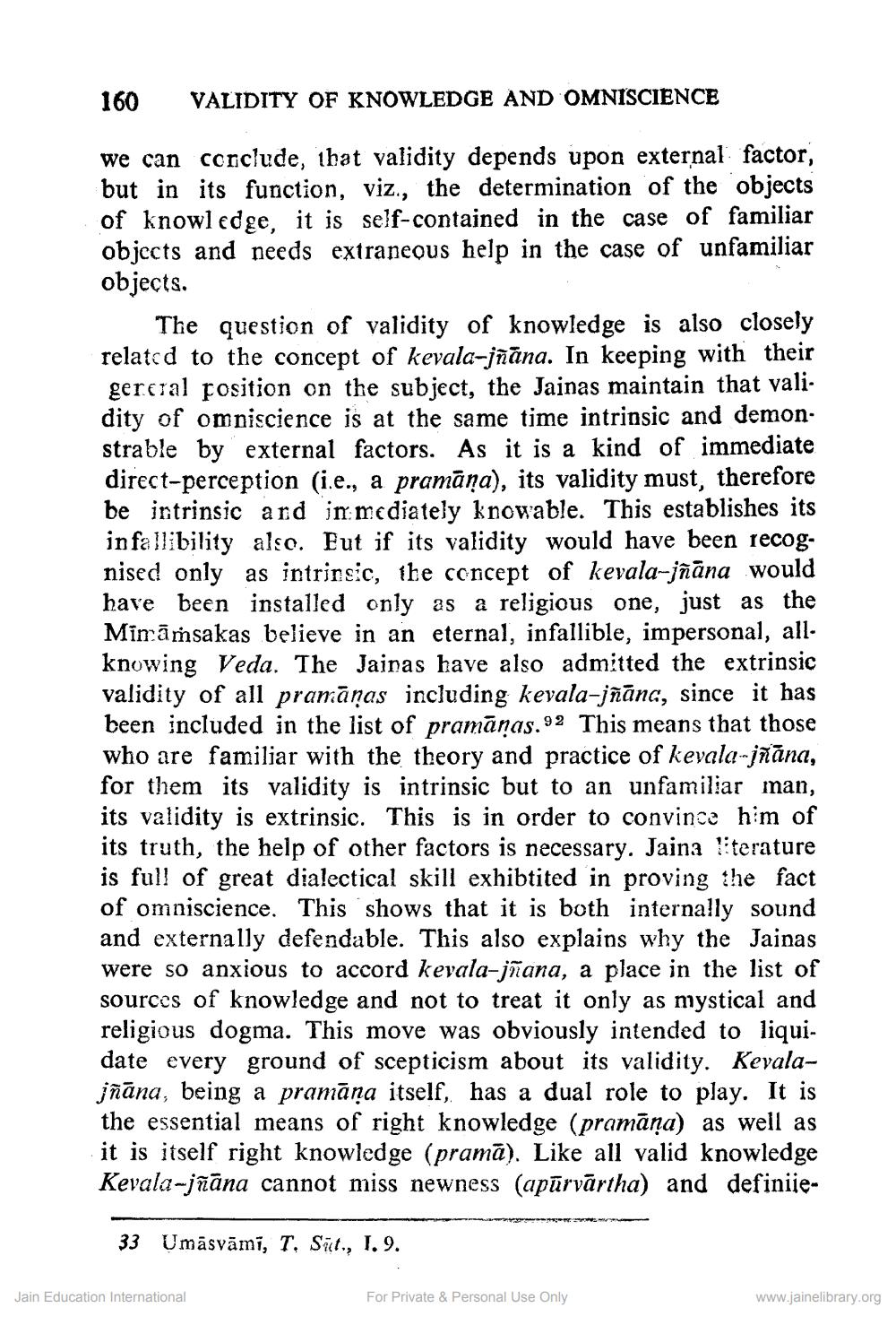________________
160
VALIDITY OF KNOWLEDGE AND OMNISCIENCE
we can conclude, that validity depends upon external factor, but in its function, viz., the determination of the objects of knowledge, it is self-contained in the case of familiar objects and needs extraneous help in the case of unfamiliar objects.
The question of validity of knowledge is also closely related to the concept of kevala-jñāna. In keeping with their gercral position on the subject, the Jainas maintain that validity of omniscience is at the same time intrinsic and demonstrable by external factors. As it is a kind of immediate direct-perception (ie., a pramāṇa), its validity must, therefore be intrinsic and immediately knowable. This establishes its infallibility also. Eut if its validity would have been recognised only as intrinsic, the concept of kevala-jñāna would have been installed only as a religious one, just as the Mimamsakas believe in an eternal, infallible, impersonal, allknowing Veda. The Jainas have also admitted the extrinsic validity of all pramāṇas including kevala-jñāna, since it has been included in the list of pramāṇas. 92 This means that those who are familiar with the theory and practice of kevala-jñāna, for them its validity is intrinsic but to an unfamiliar man, its validity is extrinsic. This is in order to convince him of its truth, the help of other factors is necessary. Jaina literature is full of great dialectical skill exhibtited in proving the fact of omniscience. This shows that it is both internally sound and externally defendable. This also explains why the Jainas were so anxious to accord kevala-jñana, a place in the list of sources of knowledge and not to treat it only as mystical and religious dogma. This move was obviously intended to liquidate every ground of scepticism about its validity. Kevalajñāna, being a pramāņa itself, has a dual role to play. It is the essential means of right knowledge (pramāṇa) as well as it is itself right knowledge (pramā). Like all valid knowledge Kevala-jñāna cannot miss newness (apūrvārtha) and definiie
33 Umāsvāmi, T. Sat., I. 9.
Jain Education International
For Private & Personal Use Only
www.jainelibrary.org




